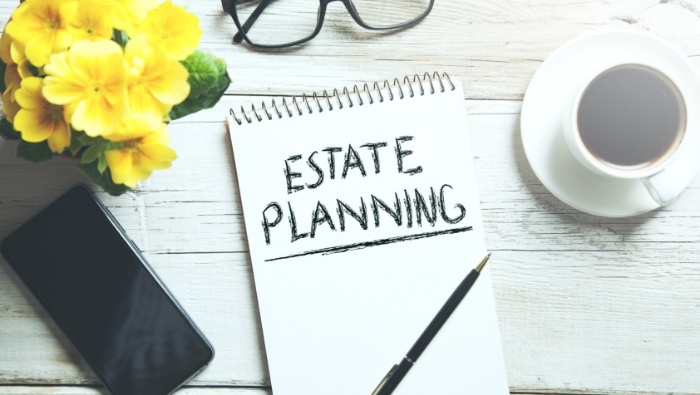Should You DIY Your Own Estate Plan?
Some DIY projects save money. Others don’t. And still others can cost you – a lot. So is do-it-yourself estate planning a good idea? And what things do you need to consider if you choose to go the DIY route? We get answers from an expert.

When you’re in the money-saving mindset, DIY projects can be a great way to save. But what about your finances? And specifically, should you DIY your own estate plan?
To get a bit more information about whether this is a good idea, we reached out to Shayna Lebowitz from Savant Capital for a few tips. Here’s what she had to say about do-it-yourself estate plans.
Q: What are some of the basic parts of an estate plan?
Ms. Lebowitz: A basic estate plan typically contains a will, a general power of attorney, and a healthcare directive (living will and medical power of attorney). These documents not only coordinate one’s desires for the distribution of their assets at death, but also set up management of their affairs during their lifetime if they become incapacitated. A revocable living trust is often a component of a basic estate plan as well. A revocable trust has many benefits but may not be necessary for everyone.
Q: Why would someone consider doing an estate plan on their own?
Ms. Lebowitz: Having estate documents prepared online can be less expensive than having an attorney draft documents. Also, some people like the convenience of creating an estate plan on their computer in their own home.
Plan Your Estate
Can't afford an attorney? Let Nolo's Plan Your Estate show you how to protect your loved ones from legal hassles and financial uncertainty after your death.
This comprehensive guide covers everything from wills and living trusts to tax strategies and health care directives.
Q: Is it a good idea for retirees to consider a DIY estate plan?
Ms. Lebowitz: It can be very dangerous to engage a DIY estate plan. Slight changes in wording within a DIY estate plan can have a dramatically different result in the distribution of one’s assets, and DIY plans rarely consider methods to optimize the distribution of assets from an income tax perspective. Well drafted, customized estate plans completed one on one with an attorney eliminate the risk of unknown distribution errors, avoid potential conflict among heirs from conflicting computer-generated terms, provide for special unique family circumstances, and may significantly reduce income tax and other administrative inefficiencies at death.
One way to minimize the cost of working with an attorney is to be prepared for the initial meeting. Gather and bring the following: a list of all assets and liabilities with current values, existing estate documents, deeds, and beneficiary designations for retirement accounts and life insurance. Also, thinking about decisions before the meeting is critical. Think about who will be named as executor and guardian (if applicable) in the will and who the beneficiaries of the estate will be.
Q: Could some parts of a person’s estate plan be DIY?
Ms. Lebowitz: A well-coordinated estate plan is very important. Oftentimes the documents need to be aligned to meet certain goals. For example, if you execute a revocable living trust and your will does not contain specific language, the revocable living trust may not work the way it should when you die. An attorney can make sure your estate documents work together the way they should.
Q: When someone is considering a DIY estate plan, what are some important issues commonly overlooked?
Ms. Lebowitz: One area that can be overlooked is state law. An attorney can point out state nuances that would typically be overlooked by online services.
Additionally, online planning is directed to general situations but everyone has unique circumstances. For example, the software I used for my own will didn’t include boxes for middle initials for my desired beneficiaries. My mother and sister-in-law happen to have the same first and last names. I didn’t think about this until I was reading over the draft and noticed that without a middle initial listed, my will would be confusing to my family and could potentially cause a lot of stress after my death.
Editor’s note: This is intended for informational purposes only and should not be construed as legal or tax advice. Please consult your legal and tax professionals regarding your specific situation.
Reviewed July 2024
About the Expert
Shayna Lebowitz is a senior financial planner in Savant’s McLean, VA, office. She has been working in the financial services industry since 1999. She is involved in many aspects of integrated wealth management, including financial planning presentations, client meetings, estate planning and income tax preparation.
Sign me up for a comfortable retirement!
Popular Articles
- Comparing Retirement Housing Options
- How We Retired With Almost No Savings
- How Retirees Can Live on a Tight Budget
- 9 Things You Need to Do Before You Retire
- What You Need to Know About Long Term Care Insurance Before You Retire
- You Didn’t Save Enough for Retirement and You’re 55+
- Could Debt Derail Your Retirement? A Checklist
- Your Emergency Fund In Retirement: A Comprehensive Guide
- Managing Your 401k In Your 50s

